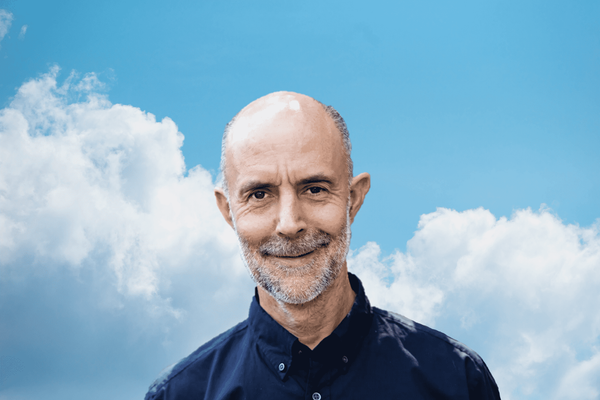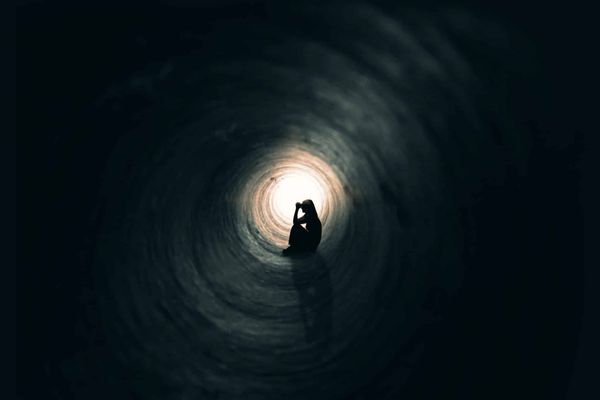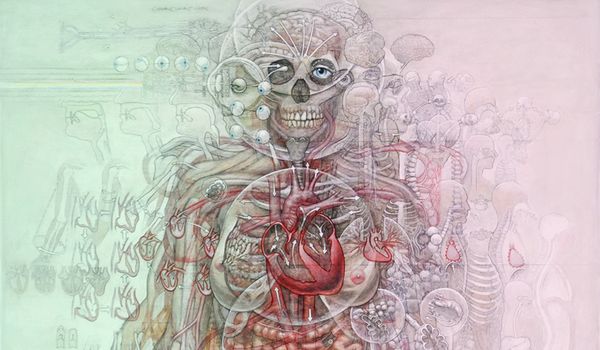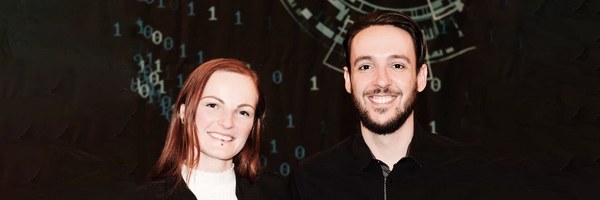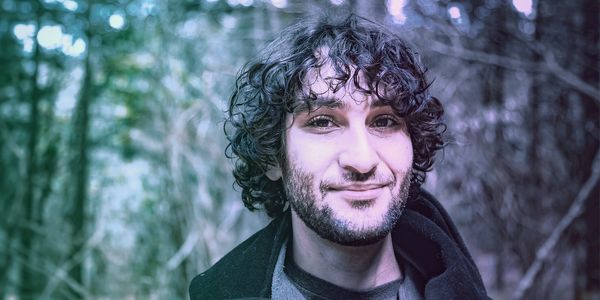Matt Karamazov • • 18 min read
Jiddu Krishnamurti, the Inner Revolution, and Why We Don’t Really Love Our Children
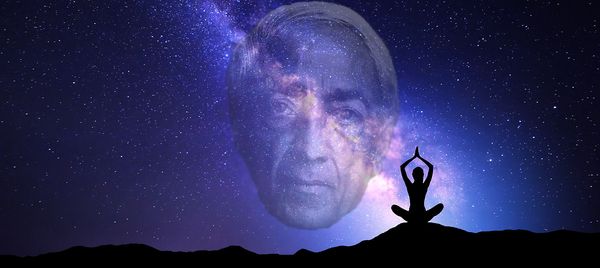
“The mind must be utterly silent. Not asking, not hoping for experience. It must be completely still. Only then is there a possibility of that light which will dispel our darkness.”
— Jiddu Krishnamurti
IS FUNDAMENTAL CHANGE POSSIBLE?
In a collection of talks given throughout the 1950’s and gathered together in the book, The Revolution From Within, Jiddu Krishnamurti stressed the urgency of staging a revolution in our thinking.
Our habitual ways of thinking have led us to where we are now, he says, and nothing less than radical, fundamental change has any hope of remaking our thoughts, attitudes, and ultimately the societies in which we live. Anything less than fundamental change is a mere modification of what has come before, and key aspects of what has come before has in turn failed a large proportion of our population.
The paradox that Krishnamurti relentlessly demands us to consider, however, is that nothing we can DO can bring about this change. We can only observe the operations of our own mind, and ask questions about everything that we think we know.
Consider the question, “Is fundamental change possible?”, the jumping-off point leading to the multitudinous questions that Krishnamurti is asking us to examine deeply.
It’s where we have to begin if we want to observe the functioning of our own minds on a level that will have real significance with respect to the outside world, and how we live our lives.
So let’s go into this question, friends, with an open mind, a mind that is open to revelation.
If we go into it with the idea that we already know the answer, then we won’t turn up anything worthwhile. This is a question with real consequences for the way we organize our societies, parent our children, and direct our lives.
We must pursue the idea of fundamental change in the same way that Jiddu Krishnamurti relentlessly posed questions to his listeners.
You’ll notice, if you read the transcripts of some of his greatest talks, that Krishnamurti asks multiple questions for every single ‘answer’ that he gives. He might answer one, only to pose three others that each attempt to get at the original question in a more nuanced way.
Krishnamurti does this because life’s biggest questions have no final answers.
Given the asymptotic nature of perfect Truth, we can only approach it by negation; by discarding what isn’t true or helpful, in an effort to move past our conditioned thinking and to achieve radical, fundamental change.
But is such a change indeed possible?
This is something that must be gone into, and not just accepted because someone has said it. It has no meaning if you just merely accept it. Arguments from authority, that common logical fallacy, have no essential relationship to perfect Truth.
Truth needs no defenders or justification.
Rather, you must ceaselessly question what you think you know, and approach life’s biggest questions from the viewpoint of someone who knows nothing. And it really is clear that we do know nothing, in an absolute sense, as we will discuss later in more depth.
If I were to ask you who you are, where you came from, where you’ll ultimately end up, and where you are right now, you would have no satisfactory answers to any of these questions. There would always be a deeper level of Truth that you could never penetrate with your limited, conscious mind.
So let’s start from the beginning…
WHAT IS FUNDAMENTAL CHANGE?
What exactly is it that we can point to as evidence that a revolution in the mind has taken place that is not simply a modification of what was there before?
It’s clear that anything that can be incrementally added is not fundamental change. It’s a modification, and it’s improvement, but it is not the fundamental change that we are seeking.
This “adding to” the mind, such as one can achieve by reading books or watching documentaries or listening to talks is simply an incremental increase of knowledge. No matter how compelling or insightful, this newfound knowledge will always be an addition to what was there before.
While learning is important, and proper education is never a waste of time, it’s merely representative of change on the surface, and change on the surface can never lead to radical, fundamental change. What we’re really after is meaningful change.
What kind of change IS meaningful? Is only fundamental change meaningful? How do we get closer to understanding what it might look like?
Let’s first take a look at a few examples of surface change, or simple modifications, in order to get an idea of what radical change is NOT. Thereby, we can approach the idea of fundamental change via negation.
For example:
If you are unhappy, and you are trying to BECOME happy, then you have instantaneously DEFINED YOURSELF as an unhappy person struggling to overcome his or her unhappiness.
You can become MORE happy, sure, but you will always be an unhappy person, always in the process of becoming slightly more happy, adding to your happiness, instead of experiencing the radical, fundamental change that brings with it a revolution in the mind.
Happiness will always be somewhere ‘over there’ and you will always be struggling to arrive there.
That can never be said to be true happiness and fulfillment, and it is certainly not what we mean by fundamental change.

In the same way, trying to become virtuous, we never acquire virtue, but rather expand our Self in the ‘guise’ of virtue.
Simply, a man who cultivates virtue ceases to be completely virtuous, because there is a part of him that is not, a part of him that is increasing his virtue. Likewise, a man who practices humility is no longer completely humble.
And further:
When violent, the mind has an ideal of non-violence which is ‘over there’ in the distance. It will take time to achieve that state, and in the meantime, the mind can continue to be violent.
This, too, is not the radical, fundamental change which we are seeking to illuminate.
So now that we know what fundamental change is not, do we know any more about what it is?
Is it not instantaneous, unconditional freedom in the here and now? Is it not timeless, in that we don’t have to wait for it to appear?
Are there any preconditions that have to be met?
I think that we can conclude, provisionally, that we have the freedom to drop our resentments and sadness at any time we so choose.
Easy for me to type, extremely difficult for you to do. I get that.
But from our current position, we can see that it is our mind, this thing that we call the self, that is preventing fundamental change from occurring. As we get further into our discussion, we’ll have a better handle on whether or not we can discard the restraints of the self, and realize radical, fundamental change.
THE NECESSITY OF FUNDAMENTAL CHANGE
Assuming that we can become radically different than we are today, we must ask ourselves:
Is this a pursuit that’s worthwhile?
Is it necessary?
Do we need to change at all?
I think it would be obvious to many people that we DO need to see fundamental change in our societies and our patterns of social interaction.
A world in which billions of people currently live on less than $2.00/day is crying out for change.
And to be clear, that figure is, shockingly, adjusted for purchasing power. It’s not what $2.00 would buy you in a developing country, although that would be bad enough; rather, billions of people are living on what you could buy for $2.00 a day in a country like Canada or the US.
Aside: There is commendable, although insufficient, progress being made by extremely committed individuals and organizations all over the world. In fact, the World Bank recently predicted that global extreme poverty will soon fall to under 10%. To make matters more complicated, there is an ongoing debate concerning what exactly constitutes “extreme poverty.”
To say that fundamental change isn’t necessary in a world like ours is akin to being in a sinking ship and saying: “I’m sure glad the hole isn’t in OUR end!”
However, we can state rather confidently that trying to change society, while leaving the individuals who constitute that society unchanged, is a dangerous error.
Simply put, we cannot afford to be “ordinary” any longer; the challenge of the world is too great.

We are the world; we are not on the sidelines. What we are, of that we make the world, and everywhere we face real problems that demand our urgent attention.
Thus, we return to the question at hand: Is fundamental change necessary?
I think it’s clear that it is necessary, if by fundamental change within our societies we mean implementing societal structures that would do better in meeting the needs of all our world’s inhabitants.
Obviously, this is a vastly more complex problem than it even may seem at first. It has many moving parts, but we can only begin where we are. A total revolution of the mind has to start from within. Society is comprised of individuals, and radical societal change starts at the level of the individual.
Yet, most of us are so eager to reform others and so little concerned with the transformation of ourselves.
Can we not see that this whole attitude is very confused?
We often look up to those who can help us or who can do something for us, and look down on those who cannot. So we are always looking up or looking down. Cannot the mind be free from this state of contempt and false respect?
Is it even possible to look through the lens of our own confusion and get a clear picture of the idea of radical, fundamental change?
It is to this question that we now turn.
WE ARE ALL CONFUSED
“There is a path to the known, but not to the unknowable. Thus every system of finding truth breaks down.”
— Jiddu Krishnamurti
Before going further in our discussion, I think it’s helpful to take a look at our own confusion when confronted with the problem and necessity of fundamental change.
We’ve asserted that it’s both possible and necessary, but what are the impediments to action? Why are we not all enlightened already? If it’s supposed to be instantaneous, why is it so difficult for us?
The answer has to lie somewhere within our own confusion.
It’s very difficult to admit to yourself that you are confused, but clearly, we are all confused.
And, truth be told, those who say they aren’t confused, are the most confused of all.
In order to be free from confusion, we would have to know that which it is impossible to know. We’d need to know where the universe in its totality is headed, we’d need to know our precise place within it, who we are fundamentally, and what we need to do with our lives.
Philosophers are good at coming up with “-isms” that seek to explain the world and its direction. We can look for answers in logical positivism, consequentialism, possibilianism, dialectical materialism, populism, liberalism, empiricism, and every other kind of ‘-ism’ that we can conceive of, but we are still going to remain confused. Every book and every teacher is only going to add to this confusion that prevents us from knowing what life is all about.
It may be that we do not know what living is about at all, and that is why death seems to be such a terrible thing. Obviously, everyone is confused about death, and many more things besides.
The whole totality of the mind is confused, and there simply isn’t a higher part of the mind which isn’t.
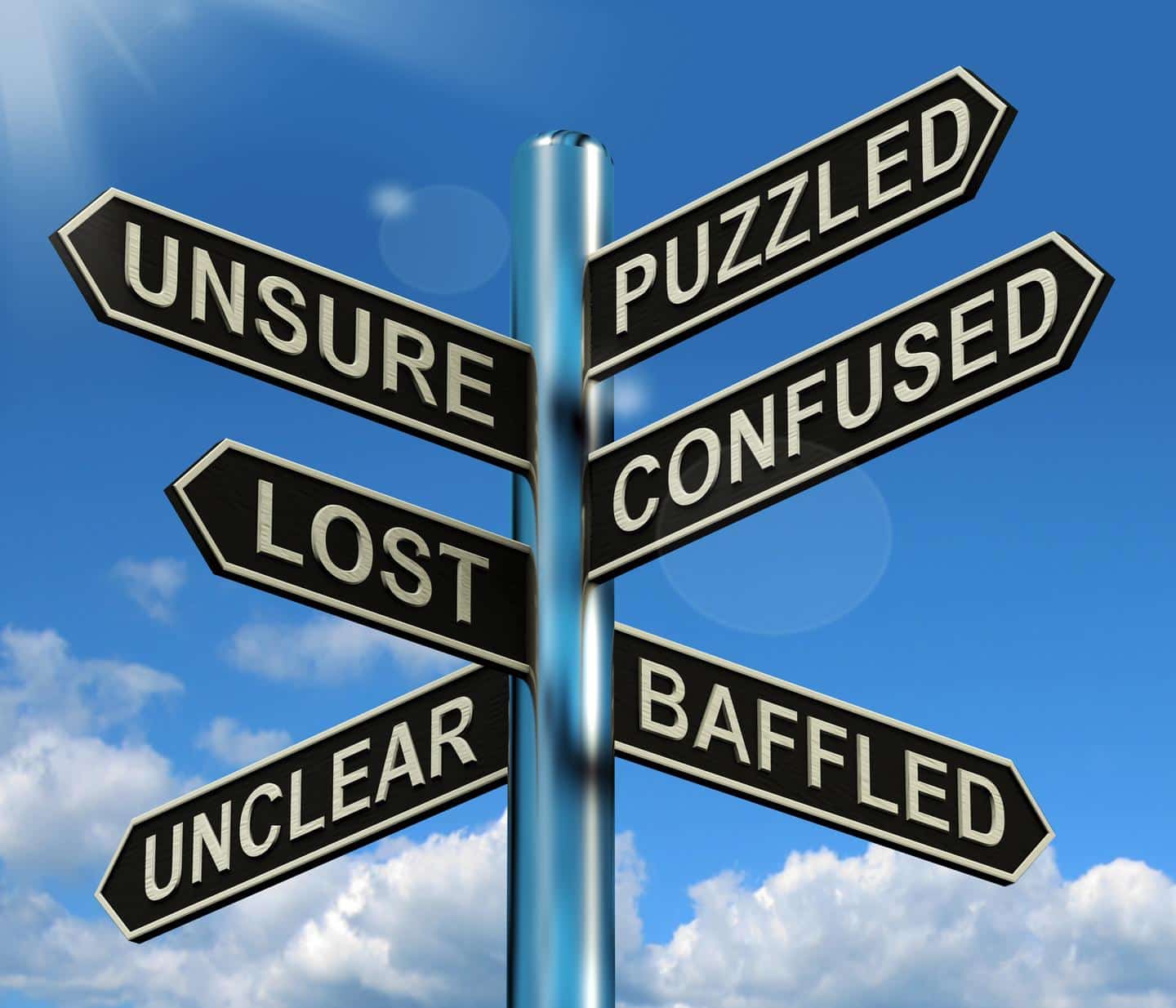
So how are we supposed to make sense out of all this confusion?
Is it possible to bring clarity to our naturally disordered minds?
Is there a method we can follow, or a path we can take towards clarity?
Krishnamurti explains that whenever one is confused, one must stop all activity, psychologically. Otherwise, anything new is just translated according to our own confusion.
If I’m confused, then I may read, or look, or ask, but my search, my asking, is the outcome of my confusion, and therefore it can only lead to further confusion.
We know this, but is there anything we can do about it?
The problem is not the real issue; rather, it is the mind which approaches the problem.
So, again we return to the necessity of radical, fundamental change.
We can’t keep incrementally increasing our store of knowledge and, at some distant point, realize fundamental change. So we have to drop down to the level of the mind, and see if we can’t somehow bypass the problem of incremental change altogether.
So, you see how our desire for the resolution of our confusion can never lead to fundamental change.
All solutions are based on desire, and the problem exists BECAUSE of desire.
Basically, thought is not the way out. All of our thought is conditioned, and a confused mind cannot resolve its own confusion.
You have chosen your political leaders, your religious leaders, out of your confusion.
You have chosen your career, your friends, your daily activities out of your confusion.
The books you’ve read, the experiences you’ve had, the lessons you’ve learned, have all been assimilated according to the confusion that already exists in your mind.
Collectively, we’ve established our social order based on our confusion. Our efforts to help the poor are based on our confusion. Our educational institutions are based on our confusion.
We don’t even know what we don’t know.
But…
When you realize that you don’t know, then you are beginning to find out.
THE FUTILITY OF SEEKING
“If we take this journey together, and simply observe as we go along the extraordinary width and depth and beauty of life, then out of this observation may come a love…which is a state of being free of all demand…and we may perhaps be awakened to something far more significant than the boredom and frustration, the emptiness and despair of our daily lives.”
— Jiddu Krishnamurti
How do we escape our confusion?
How can we even tell when we’re not confused any more?
Is there an end to our confusion while we are still alive?
Krishnamurti’s prescription is as follows:
“Observe the activities of the mind without trying to change them or put a stop to them, because the moment you seek an end, you are back in the ‘me, not-me’ duality.
It’s the mind that is unaware of its own activities that sets up as the authority someone or something external to which we go for help, and we therefore become slaves.”
He is saying that we can bring about a transformation in ourselves only when we understand the process of our own thinking.
What is important is to understand the whole field of thought, and see if the mind can go beyond all that.
He asks, “Is thought somehow different than the mind?”
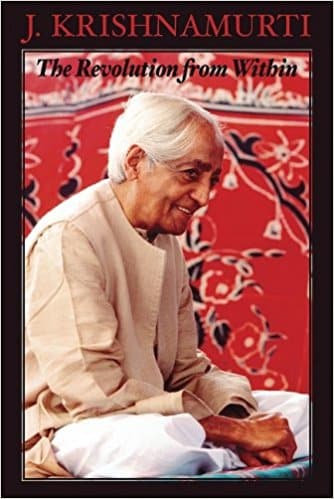
This in turn leads us to the question of, “What is the ‘self’, the center of the ‘me’ from which all activity seems to spring?”
The self for most people is a center of desires, manifesting itself through various forms of continuity.
We ceaselessly desire to perpetuate ourselves, to satisfy our cravings, and to set ourselves up as an object of specialness in a world of meaning.
None of these desires are permanent except in the memory of what we have been and would like to be, although we try to make them permanent through clinging to various ideas, perceptions, and relationships.
For those who want more, more, more, life is an everlasting struggle.
Life is one thing, and what we want is another. We get what we want, only to discover that it’s not ultimately what we wanted at all. We wanted some other thing, tantalizingly just a little further up the road.
Can we live in this world without any effort to be or become something, without trying to achieve, to reject, to acquire?
I mean, of course, without trying to become something other than your authentic self?
Can the mind cease to think in terms of continuing, of the “me”?
The concern to become something more, to become something others want you to be, is the constant preoccupation of the mind and the primary cause of its superficiality.
That much is clear. Which leads Krishnamurti to say:
“It is my mind that creates the problem, my mind being the result of time, of memory, the seat of the ‘me’, which is everlastingly craving for the ‘more’, for immortality, for continuity, for permanency here and in the hereafter. It is this uncertainty within ourselves that leads to the outward manifestations of personal ambition, the desire to be somebody, the aggressive attitude towards life.”
What we are, of that we make the world. So in order to avoid superficiality and meaninglessness, there must be ceaseless questioning.
Any conscious effort on my part to become something other than what I am, or other than what I consciously want to become, only produces still further suffering, sorrow, and pain.
A man like Jiddu Krishnamurti would never tell his listeners that education was a waste of time. However, we must never believe that our education is over, or that we have somehow reached the end of our confusion.
Everything around us tells us what to think, books and teachers included, and we must continually renew our freedom from traditional and historical thinking in every moment.
Linear thinking and the all-too-human propensity to settle for easy answers has failed the bottom 40%. It even plagues those in the so-called ‘developed’ nations who are today stricken by existential anxiety.
At bottom, acquisitiveness and greed have destroyed our potential for gratitude.
Nationalism and eschatological certitude have crippled our capacity for understanding and reconciliation.
A radical, fundamental revolution from within can restore the unrestrained lust for life that gives us our reason for being. We can revive our capacity to greedily enjoy our friends, instead of our possessions.
But so long as there is the idea of the “me” or the “I”, then there must necessarily be loneliness.
And you can’t seek the immeasurable because you don’t know what it is; hence the futility of seeking.
But, can we give up seeking? Just like that?
Can we overcome our self-directed focus and do what is just and fair? Can we live with uprightness in a world often bereft of such character?
Or, even more basically, can we love our children?
JIDDU KRISHNAMURTI SAYS WE DON’T REALLY LOVE OUR CHILDREN
“If we did love our children, we would stop all wars tomorrow, obviously. We would not condition our children. They would not be English children or American children, they would just be children.”
— Jiddu Krishnamurti
If you have been following what has been discussed so far, you will see that fundamental change is absolutely critical to the dissolution of the threats to our continued existence.
Violence and suffering on a global scale can be reduced to the individual. It is the mind of the individual that approaches the problem that needs to change, and the world is made up of individuals.
Society is based on violence and comparisons, and as long as it is so, there will always be struggle within that society, not to mention all the struggles, pains, and difficulties that naturally accompany human existence. That is what Krishnamurti is driving at here.
Everything that we do is based on striving, ambition, success, achievement; but none of it is the abandonment of the self.

Granting that everyone is doing the best that they can, the best that they know how to do, how can it be otherwise that our toxic thoughts and undisciplined habits are being passed down to our children?
Our own confusion, with which we are now hopefully becoming intimately aware, cascades downward to future generations.
Parents want their children to conform to meet the demands of their insane societies, but is that education?
Since our society is not yet what it should be, why encourage our children to stay within its destructive pattern?
We are currently dependent on this pattern, but can we live without this dependence?
The insistence on one’s nationality, on race, on religious belief or any other idea, obviously separates. All of it represents the activities of the self, and its insistence on continuity and self-perpetuation. That much is clear.
We submit to authority because all of us have this inward demand to be safe, to feel secure. We have enough to think about with respect to our survival and to the “success” of our children, that we can easily settle into the acceptance of easy answers handed down to us from above. Whether that means from the state or from some religious authority.
This safety, so it seems to many, must be defended at all costs, because we have so much invested in it.
So much of our identities and our feelings of assurance of our continued survival rest on the perceived strengths of our existing institutions.
It’s here that Krishnamurti steps in with the bold and incendiary claim that we don’t really love our children.
You don’t really love your children, he says, so you sacrifice them to protect your property, to defend your State, or the church, or some other organization which demands of you certain things.
Organized religions don’t really insist that you step out of greed, envy, ruthless ambition, and cruelty. They are far more concerned with what you believe, with rituals and the rest of the confusion.
In contrast, righteousness of behavior is not something to be gained, to be arrived at, but must be understood from moment to moment in the actuality of daily living.
It requires a fundamental change in our approach to life, and constant awareness of how our actions impact others.
Krishnamurti’s own phrasing is as such:
“The man who is ceaselessly questioning, who has no authority, who does not follow any tradition, any book or teacher, becomes a light unto himself.”
Perhaps it’s radical, fundamental change that’s required to shake us out of our collective stupor and restore to us our humanity.
THE REVOLUTION
“Sirs, life is something extraordinary, if you observe it. Life is not merely this stupid little quarreling among ourselves, this dividing up of mankind into nations, races, classes; it is not just the contradiction and misery of our daily existence. Life is wide, limitless, it is that state of love which is beauty; life is sorrow and this tremendous sense of joy. But our joys and sorrows are so small, and from that shallowness of mind we ask questions and find answers.”
— Jiddu Krishnamurti
If there can be any conclusion at all, it’s that freedom is not at the end; it is at the very beginning, the now.
The end is at the beginning, which lies outside of time.
Radical, fundamental change does not come at the end. Rather, it’s our starting point. If we’re not happy now, then we never will be. If we don’t remake our societies now, then we never will.
Fundamental change doesn’t occur across time, but rather it is available to us at every moment.
Revolutions of the mind occur instantaneously, at the very moment when we cease our anguished searching.
And that is what our lives often are, correct?
We say: “I am ‘this’, and I would like to be ‘that,'” but the struggle to be something different is still within the pattern of our desire.
All suffering comes from desire, and so any incremental change that we pursue throughout our lives is not only going to be fraught with confusion, but will carry with it all the attendant suffering and anguish which it necessarily implies.
So where can we find relief for this condition of the mind?
Where can we go for some form of final answer to our continued searching and relentless questioning?
In the end, we must realize that life’s biggest questions have no definite answers. Indeed, the right question has no answer.
We must also conclude that a mind that seeks peace will never find it, and thought is not the way out.
When you see that fundamental change is instantaneous, and is a function of observing the workings of your own mind, you can break free of your past at any moment, and start to unravel your own conditioning.
It’s simple: The mind can never free itself through some system or method. Anything that your mind DOES can never bring about this kind of radical, fundamental change that we are discussing.
Anything that can be KNOWN is not what we’re looking for.
All that can be left to us is to observe the functioning of our own minds.
When we realize this, we also realize the truth of Krishnamurti’s words when he says:
“To have that inward fullness of life, which includes death, the mind must free itself from the known. The known must cease for the unknown to be.”
When you don’t know what it is that you’re looking for, and you don’t know what it’ll look like when you find it, all that remains to you is to examine the operations of your own mind.
Naturally, this leads to the falling away of every answer that has been and could be given concerning happiness and fulfillment, and concerning how we should govern our societies.
Since we see that the ideas of happiness and fulfillment are constantly changing, we must ask ourselves if there really is such a thing.
We’ve been discussing the necessity and possibility of fundamental change for some time now, and if you have been following the logical progression of our discussion, you can see that observing the function and operation of your own mind without judgement is the only way out of our collective confusion.
I can also assume that you WANT to love your children, that you WANT to overcome the destructive patterns of society, and that you WANT to affirm the meaningfulness of daily life.
So what’s stopping you?
What’s holding you back from experiencing this revolution of the mind?
In the final analysis, there is nothing to do, and nothing to attain.
“When you realize there is nothing lacking, the whole world belongs to you”
— Lao Tzu
There is no set of rules or precepts that you are required to follow, nothing that you are being asked to believe.
Rather, fundamental change is ready and waiting.
What are YOUR answers to these questions that we have been discussing? How will they impact you on the concrete level of your daily existence? Will you change?
If you don’t change now, then you never will.
All the best,
Matt Karamazov
Further Study:

The Revolution From Within by Jiddu Krishnamurti
In this collection of talks, the deeply empathetic Jiddu Krishnamurti explores the possibility and necessity of a fundamental shift in our thinking. A more loving and egalitarian society is within reach, he says, but if we don’t change now, we never will.



